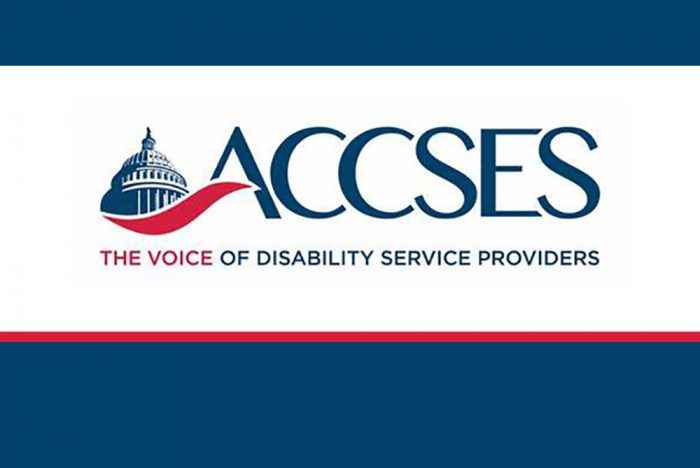The Office of Developmental Programs (ODP) has shared ODPANN 23-065: Now Available: Home and Community-Based Services (HCBS) Rule Assessments Licensing Results for Fiscal Year 2021-2022. The purpose of this communication is to inform all interested persons of the availability of the second annual report that assesses provider compliance with the federal HCBS Rule for ODP. View the announcement for information on accessing the report as well as other relevant information. Questions pertaining to the results should be directed to ODP.
hcbs
ACCSES Action Alert: Respond to CMS’s Notice of Proposed Rulemaking By Midnight July 3
CMS Webinar on June 14 — Outcome-Based Payments in the 1915(c) HCBS Fee-For-Service System
CMS Webinar: June 14, 2023
1:30 pm – 3:00 pm ET
Register here
States can use outcome-based payment arrangements as an alternative or supplement to traditional fee-for-service (FFS) payments to incentivize 1915(c) waiver program providers with meeting targeted milestones or achievements. States offering outcome-based payment arrangements establish targeted outcomes that align with participant or program goals. This training will help states by:
- Providing an overview of outcome-based payments in 1915(c) waiver programs;
- Highlighting examples of outcome-based payments from 1915(c) waiver programs and outcome-based payments methodologies;
- Discussing the impact of the COVID-19 Public Health Emergency and state responses using outcome-based payments; and
- Discussing considerations for states implementing outcome-based payments in 1915(c) waiver programs.
May 2023 MLTSS Subcommittee Meeting Documents Now Available
Documents from the May 12, 2023, Managed Long-Term Services and Supports (MLTSS) Subcommittee meeting are now available. The documents include the agenda, transcript, and PowerPoint presentations and can be found below:
- Agenda for May 2023
- April Follow-Up Items
- CHC-MCO SNAP Data Tracker
- HCBS CAHPS 2023 Action Plan and Survey Results
- MLTSS Subcommittee Meeting Transcript
- OLTL Updates
- PDA Master Plan for Aging and Disabilities
- PHW Service Coordinator Responsibilities
The next MLTSS Subcommittee meeting is scheduled for June 1, 2023, from 10:00 am – 1:00 pm in the PA Department of Education’s Honors Suite at 333 Market St. in Harrisburg, PA. The option to participate via webinar is also available. To participate in the meeting via webinar, please register here. You will receive a confirmation email containing information about joining the webinar if you registered correctly. If you have trouble accessing the webinar registration through Internet Explorer or Safari web browsers, please try accessing it through a different web browser, such as Chrome or Edge.
Dial-In Number: 1 (562) 247-8321
Access Code: 856702912#
President Biden Signs Executive Order Aimed at Improving Care for People with Disabilities

President’s Committee for People With Intellectual Disabilities Public Meeting — May 1
May 1, 2023
12:00 pm ET
The Committee will collectively discuss emerging Home and Community-Based Services (HCBS) issues identified by four PCPID work groups in the areas of direct support professionals, employment, community living, and federal support programs. This discussion will help develop a general framework for the preparation of the PCPID Report to the President.
If requesting accommodations for meeting participation, please send an email request by April 17, 2023. Both ASL and CART will be provided during the meeting. Register here.
















